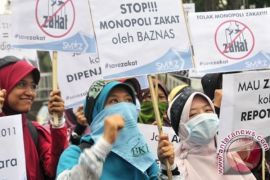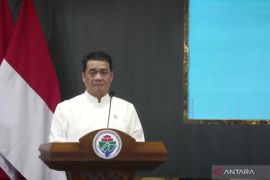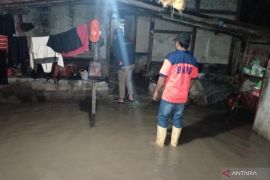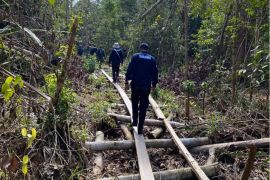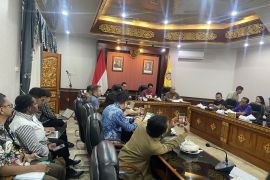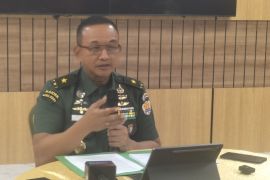As a member of the Association of Southeast Asian Nations (ASEAN), Indonesia will encourage diplomatic means to resolve the problem, the head of state said here on Thursday.
"I will pursue a diplomatic approach in the near future, because it`s bad (if the incident prolongs). (But) it does not mean that Indonesia will intervene in Malaysia`s internal affairs. No," Yudhoyono stated.
He expressed his concern about the conflict that claimed a number of lives and hoped that the two parties could find a peaceful solution.
The president also hoped that Brunei Darussalam, as the current ASEAN Chair, to take pro-active moves to help resolve the problem peacefully.
He instructed Foreign Affairs Minister Marty Natalegawa to make sure that Indonesian migrant workers in Sabah are safe.
"This is a sensitive issue, but we must not be indifferent to the problem. I have instructed the foreign minister to take a stance if it`s going closer to the Indonesian territories. The problem must not be complicated further. Therefore we must have the right stance," he said.
Meanwhile, BBC reported on Thursday that Malaysia rejected a call for a ceasefire by a Philippine Muslim clan who launched an incursion into a village in Sabah last month, saying the land belongs to them.
PM Najib Razak said they want the group "to unconditionally surrender".
The ceasefire offer by the group`s leader based in Manila came after UN Secretary General Ban Ki-moon called for an end to the violence in Sabah.
Since fighting began, 60 people have died: 52 Filipinos and eight policemen.
Malaysian National Police Chief Ismail Omar was quoted as saying that at least 31 Filipinos have been killed this week.
The Manila-based leader of the Filipino clan, Jamalul Kiram III - one of several men who claims the title of Sultan of Sulu - said earlier this week they they were prepared to "fight to the last man".
But on Thursday, Mr Kiram issued a statement following Ban`s comments and called for a ceasefire to the violence in Sabah.
The group of some 200 Filipinos landed at a coastal village in the Lahad Datu district of Sabah, on Malaysian Borneo, saying that the territory was theirs.
Calling themselves the Royal Army of Sulu, the clan members said they were descendants of the Sultanate of Sulu in the southern Philippines, which ruled parts of northern Borneo for centuries, and demanded that the Malaysian government pay more money to lease their land.
Both the Malaysian and Philippines governments are coming under increasing public pressure to end the ongoing crisis.(*)
Editor: Heru Purwanto
Copyright © ANTARA 2013


